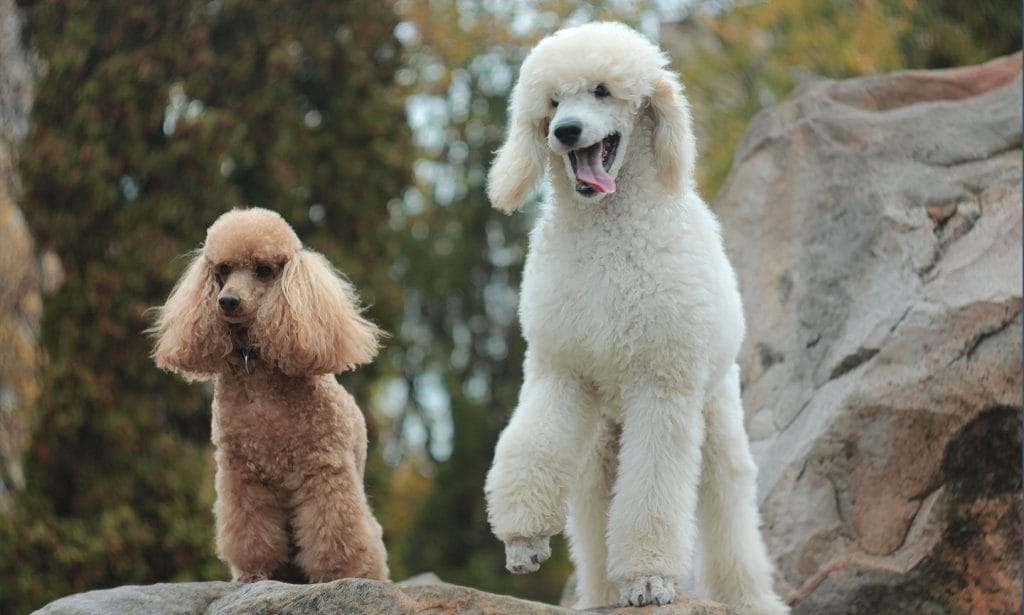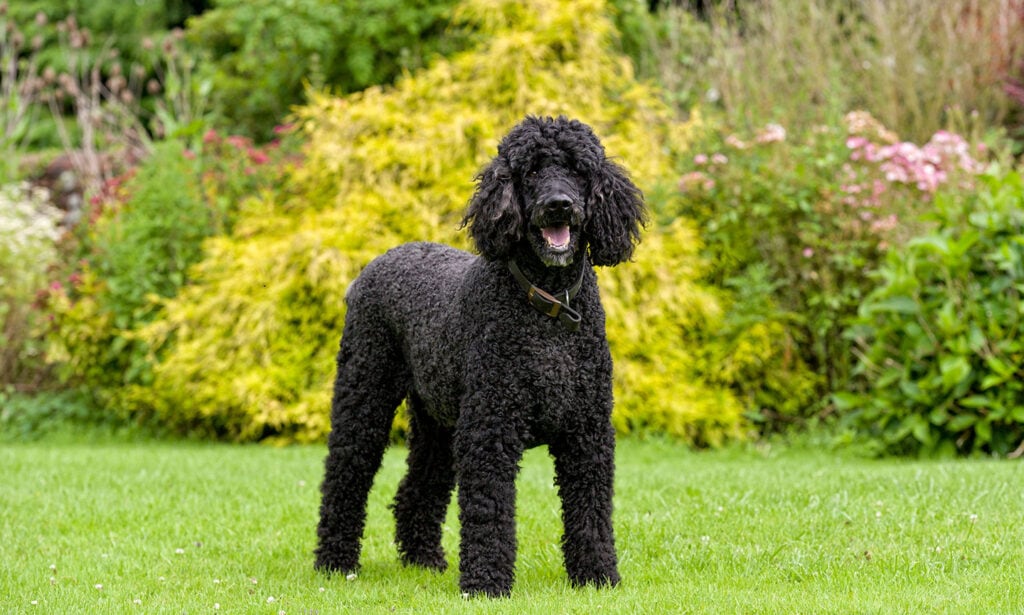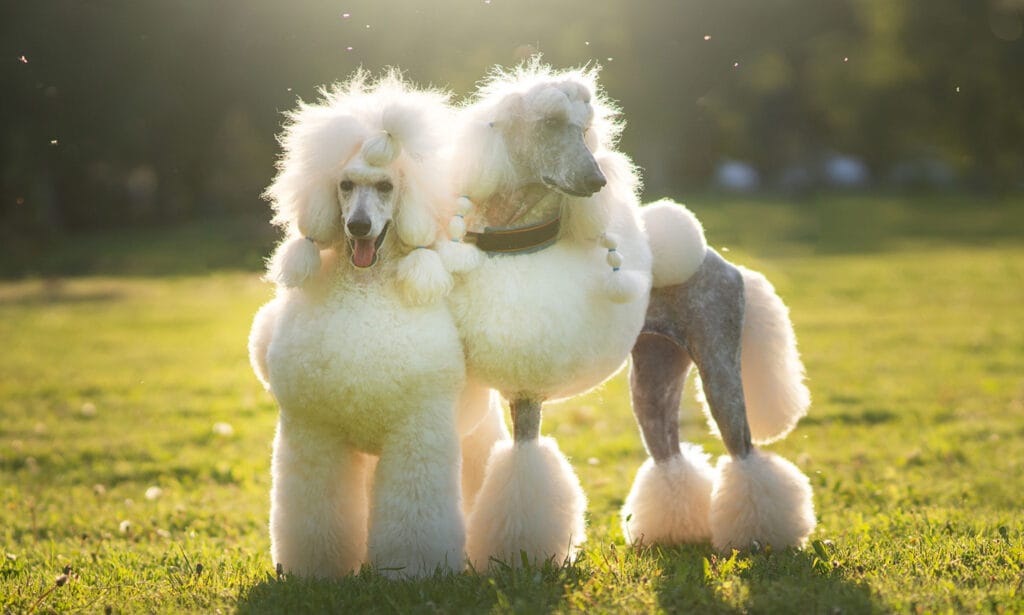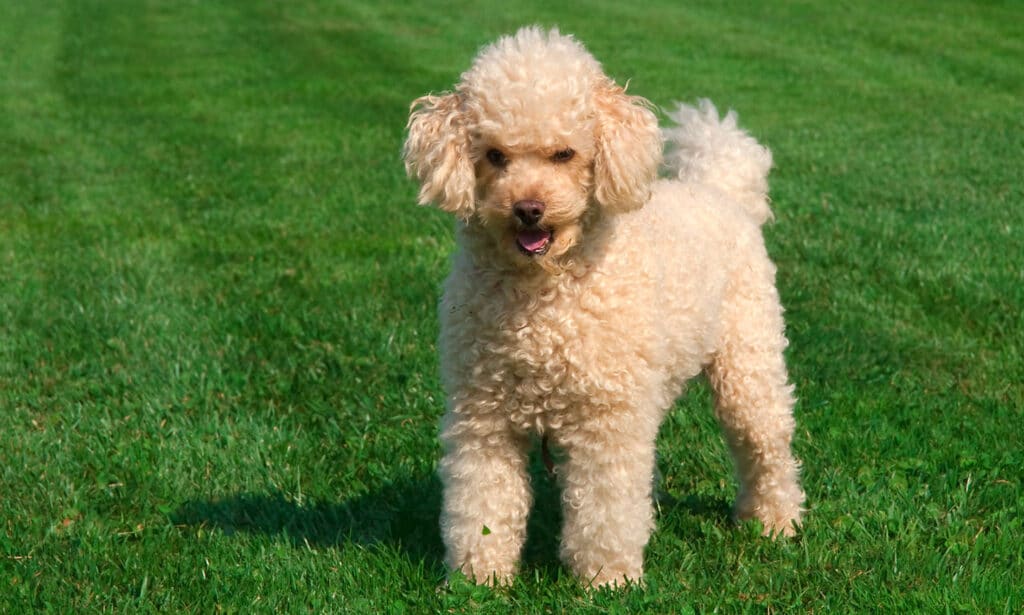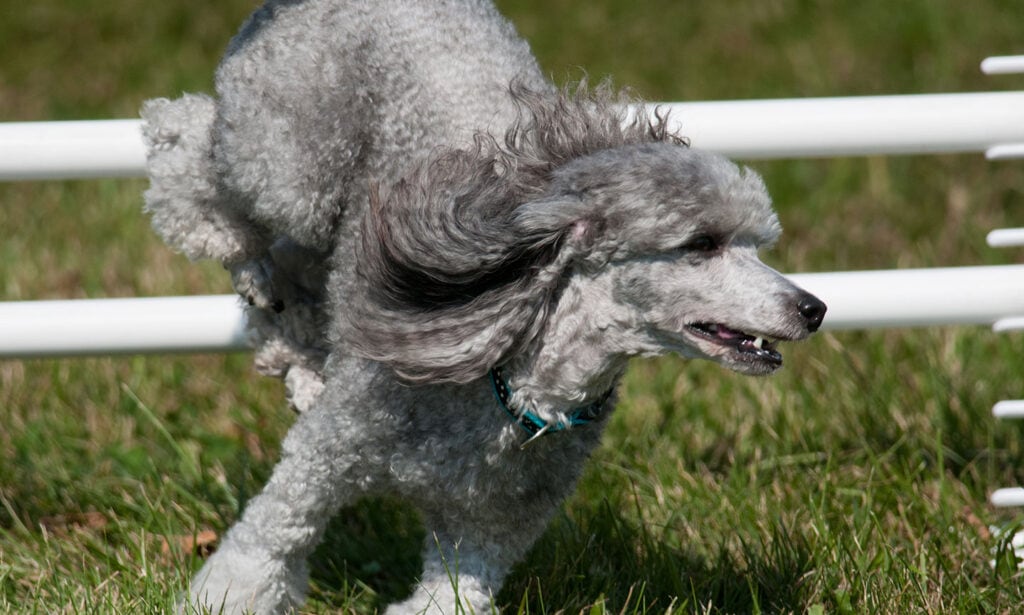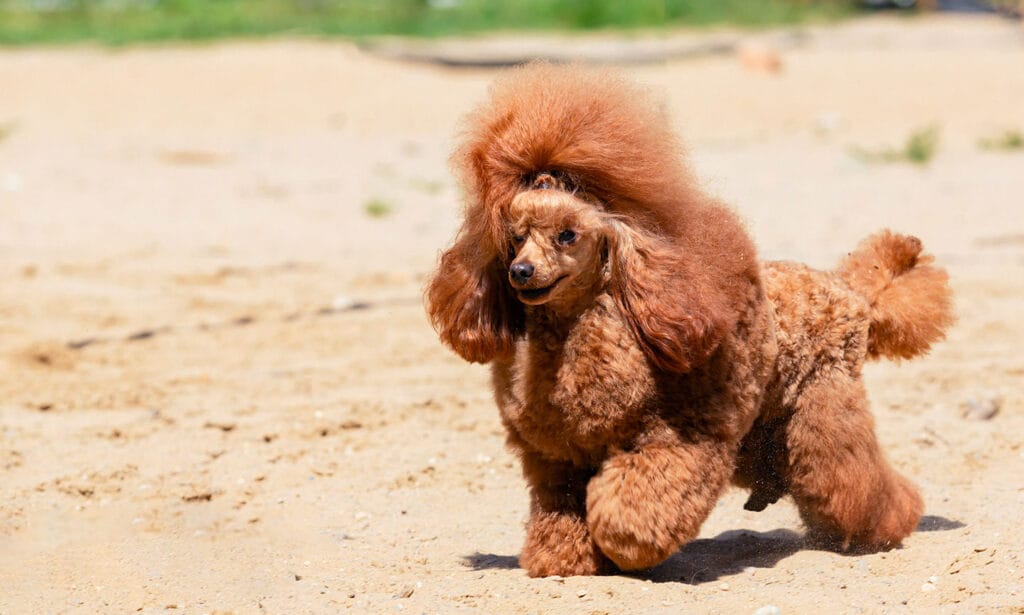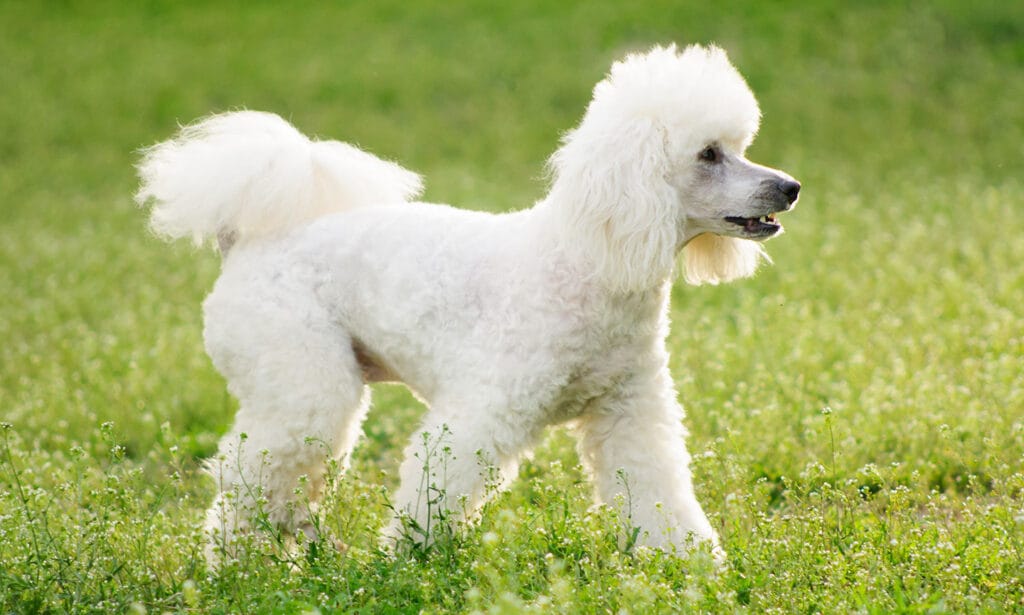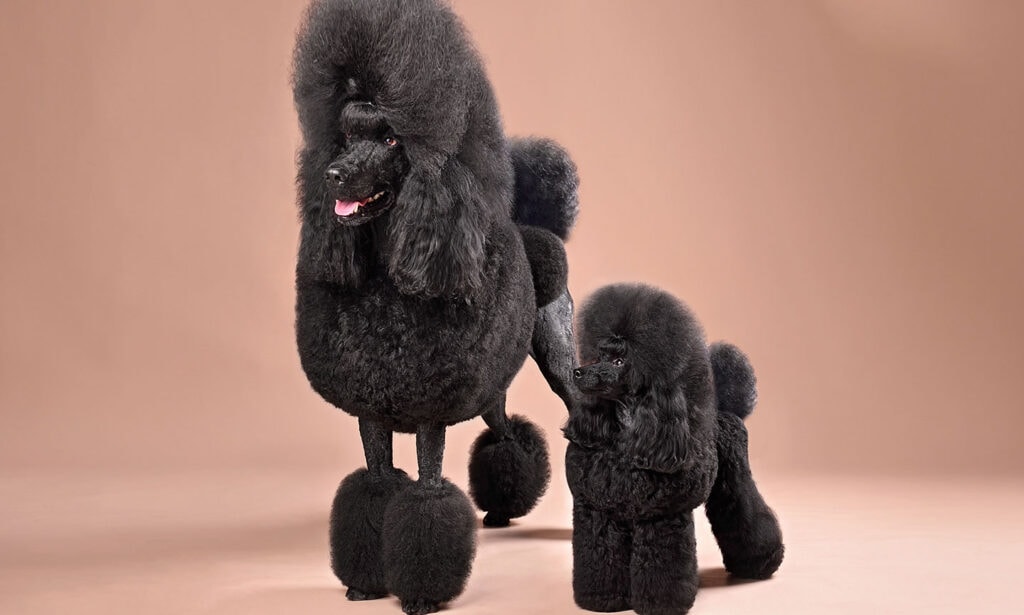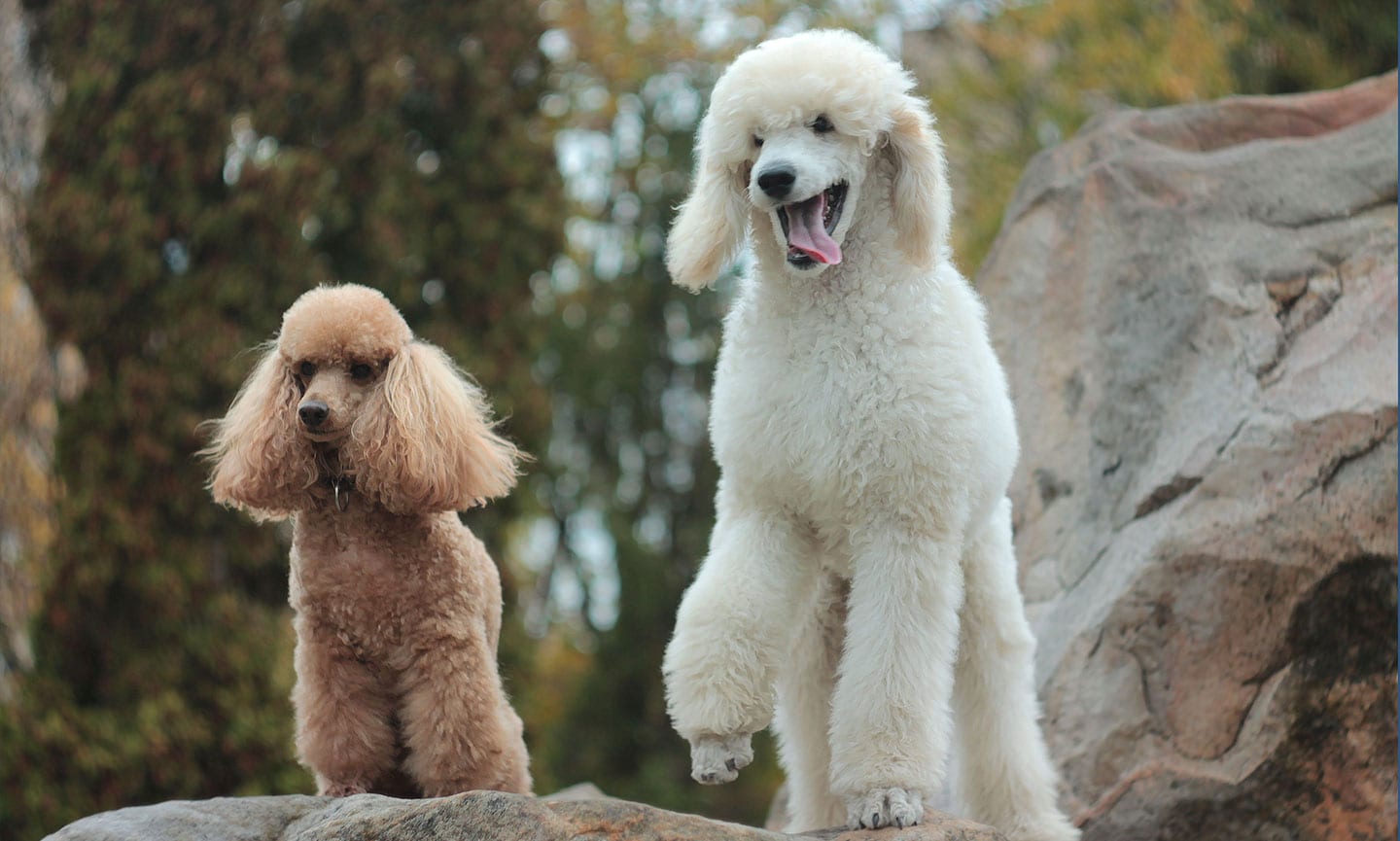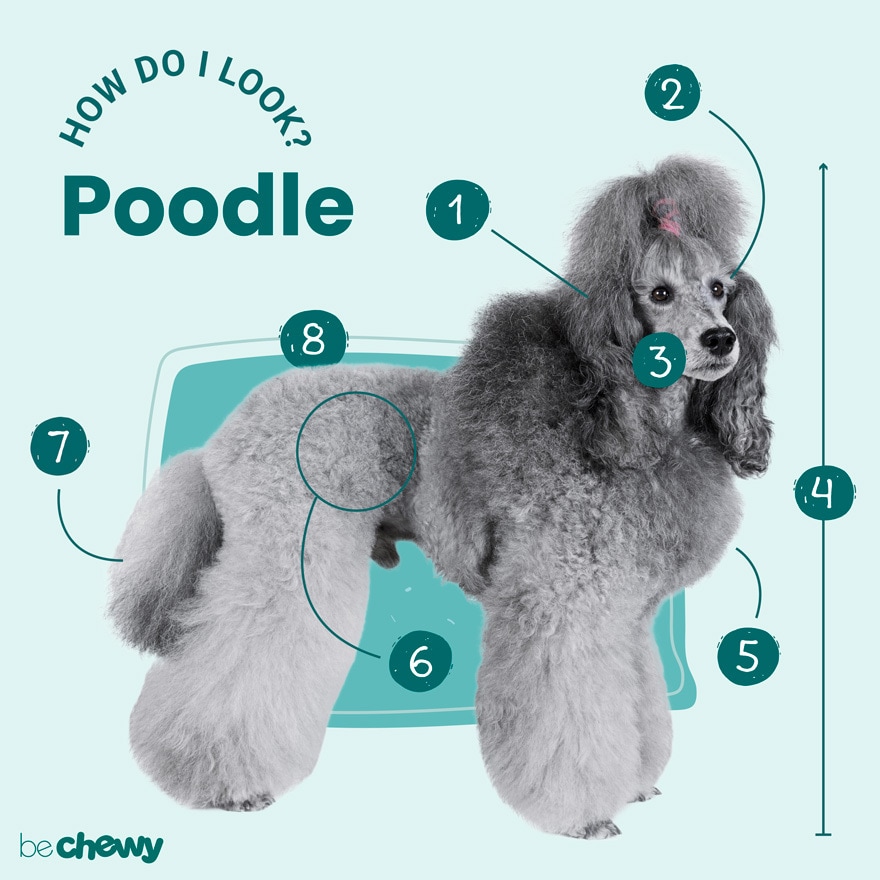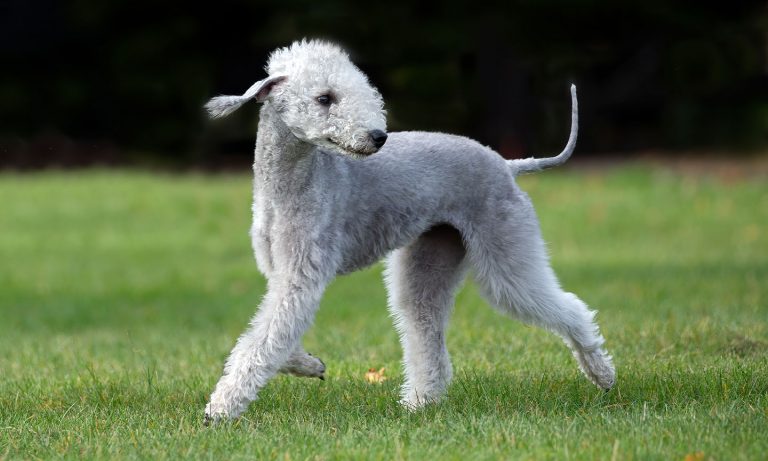Poodles are intelligent, social and up for anything. They’ll be your biggest cheerleader, encouraging you to focus on what truly matters in life, whatever that means to you. Whether you’re at a farmer’s market, watching TV or hanging out at a brewery, the active Poodle is the perfect “plus one” for many of life’s little adventures.
Breed Snapshot
Temperament:
SportySmarty PantsLoves The SpotlightCoat Color:
BlueGraySilverBrownCafe-au-LaitApricotCreamWhiteSilver BeigeRedBlack
Best For
Poodles are as intelligent as they are elegant, and thrive on mental stimulation and affection. Coming in multiple sizes and with coats that are easy on allergy sufferers, they make ideal companions for many different lifestyles.
Poodle Temperament
Poodles have been typecast as prissy, silly or neurotic, but in reality, this active dog breed defies Hollywood stereotypes with their outgoing, friendly and eager-to-please personality. However, their temperament can be influenced by the mood of those around them: Poodles who live in chaotic households or homes where people are barely home may resort to attention-seeking behavior, such as barking or chewing. That’s because Poodles form deep, loving bonds with their pet parents and prefer to spend time with you over almost anything else.
That’s not to say they can’t be alone: Their innate intelligence enables them to excel in obedience and early socialization, so if you properly train them to be comfortable with being alone, they’ll be fine. There are always exceptions to any rule, but generally Poodles are not a high-anxiety breed.
How to Care for a Poodle
You think a Poodle’s a delicate flower? Hardly! Bred as hunting dogs with superior running and swimming skills, Poodles are a hardy breed group who love to show off. They’ll absorb new knowledge their whole life long and are always up for a training sesh to try new tricks. They adore spending time outdoors; socializing with people and pets; and of course, going on adventures with their BFF—you.
Poodle Health
Poodles are a generally healthy dog breed. Like all dogs, they’re prone to certain health conditions, but compared to most other breeds, they have fewer genetic health issues.
Poodles have variable lifespans depending on their size. Though exceptions exist, toy, miniature and standard Poodles can live up to 18 years. However, there are some health issues to be aware of to help your Poodle have a happy, long life.
- Hip Dysplasia: Poodles may be susceptible to hip dysplasia, a condition in which the ball and socket of the hip joint don’t fit together correctly, which can cause mobility issues. Hip dysplasia has a genetic and environmental component. The treatment is physical therapy, medication and surgery in severe cases.
- Patellar Luxation: This often-genetic orthopedic condition results when the kneecap is able to slip in and out of place resulting in potential lameness, pain and arthritis. Treatment options include weight management, joint supplements, pain medication and, in severe cases, surgery.
- Hypothyroidism: Hypothyroidism occurs when the thyroid doesn’t produce enough thyroid hormone, which can lead to weight gain, lethargy and hair loss. Hypothyroidism is typically easily detected with a simple blood test and treated with an oral prescription medication.
- Eye Issues: Some Poodles may be susceptible to eye issues, including:
- Cataracts
- Optic nerve hypoplasia (a condition some dogs are born with)
- Progressive retinal atrophy (PRA)
- Glaucoma
All of these can cause blindness, but surgery can treat cataracts and glaucoma. The good news is that Poodles can live a happy life even if they lose their sight and can learn to rely on other senses.
- Sebaceous Adenitis: This skin disease can inflame the sebaceous glands (glands on the skin responsible for lubricating the skin and hair follicles). This condition can lead to hair loss, scaly skin or irritated patches on the dog’s skin.
- Mitral Valve Disease: Poodles can be prone to a heart condition where the valves on the left side of the heart leak. This usually is picked up by your vet as a heart murmur. If your vet hears a heart murmur, they will likely refer you to a veterinary cardiologist for an echocardiogram (ultrasound of the heart) to determine the cause.
- Addison’s Disease: This endocrine condition often seen in Poodles occurs when the body does not make enough of its own natural steroid, cortisol. This can present as an acute emergency situation where the dog collapses or can be a more chronic presentation of weight loss, lethargy and vomiting/diarrhea. Your vet can perform blood tests to diagnose Addisons and start your pup on the necessary treatment plan. Preventative care is essential. Help your pup maintain a healthy weight; provide ample opportunities for exercise; and brush their teeth. Also, note any time your Poodle seems in pain or changes their behavior, such as losing interest in food or toys, or acting more lethargic or irritable than usual. If you see any of these changes, contact your vet.
Poodle History
Long before the Poodle’s regal reputation took root, the breed’s origins were far from the elegant, frou-frou and French associations they carry today. The Poodle may be the national dog of France, where they are known as the Caniche (“duck dog”), but the breed originated in Germany over 400 years ago. Bred for duck hunting, the Poodle was a specialized dog with a love of water. The term “poodle” comes from the German word “pudelin,” or splashing in the water.
In ancient times, the Poodle’s ancestors were likely ship dogs who retrieved things that fell overboard (including people); guarded ships; and otherwise served as a trusty mate to deckhands. During the Renaissance, French nobility spotted these German duck hunters and, charmed by their good looks and endearing temperament, began bringing them into the courts as companions. Circuses, too, took note of Poodles’ good temperament and easy-to-train traits, and the Poodle dog became a circus-performing favorite.
The Poodle eventually found their way to the United States, though exactly when is a bit murky. In 1887, the American Kennel Club (AKC) first recognized the breed. Today, their distinctive style and winning personality make them stand out; the Poodle has continually been one of the most popular dog breeds in America. They rank in the top ten on the list of most popular dog breeds.
How do you get a Poodle as a pet?
A purebred puppy can cost $700 to $2,000, a price you should only pay if your breeder screens their breeding stock for health issues. You can find reputable breeders at the AKC website.
If you’d prefer to adopt a Poodle, start by contacting the Poodle Club of America Rescue Foundation; visiting Chewy’s pet search; or looking for the breed at your local shelter.
5 Poodle Facts
- These dogs were initially bred in Germany to be duck hunters. Then France downsized them to be toys.
- They’re an incredibly versatile breed. They hunt; do agility, nose work, rally/obedience, therapy and service dog work; barn hunt; and do Fastcat (a 100-yard dash chasing a lure), conformation and tracking.
- In the mid-1970s, one Iditarod participant created a sled team partially made of Poodles, and the dogs put up a good race against more traditional sled dog breeds like Huskies.
- Poodles can be clowns: joyous, friendly, eager to please, and they love their families. They want to be with their people.
- Poodle coats shed very little, making the breed a popular choice if you have allergies or want a dog that doesn’t require much vacuuming.
FAQs
Are Poodles hypoallergenic?Yes, Poodles are considered hypoallergenic, and that makes them a popular dog for pet owners with allergies. Who are the most famous Poodles?Some celebrity Poodles include Champagne (Elvis Presley’s pup), Dee Dee (Walt Disney’s dog) and Rufus (Winston Churchill’s pooch). What are the most common Poodle mixes?
Note: These are not purebred dogs but mixed breeds. Are Poodles hunting dogs?Yes! Poodles are hunting dogs known for their keen sense of smell, sight and hearing. Their quick speed and ease in the water make them especially adept at hunting waterfowl and other small game. Are Poodles smart?Yes, Poodles are super smart. They love learning and thrive in training sessions, classes and social situations. Indeed, they’re so smart that they get bored easily. And a bored Poodle may act out by engaging in destructive behavior such as chewing. |
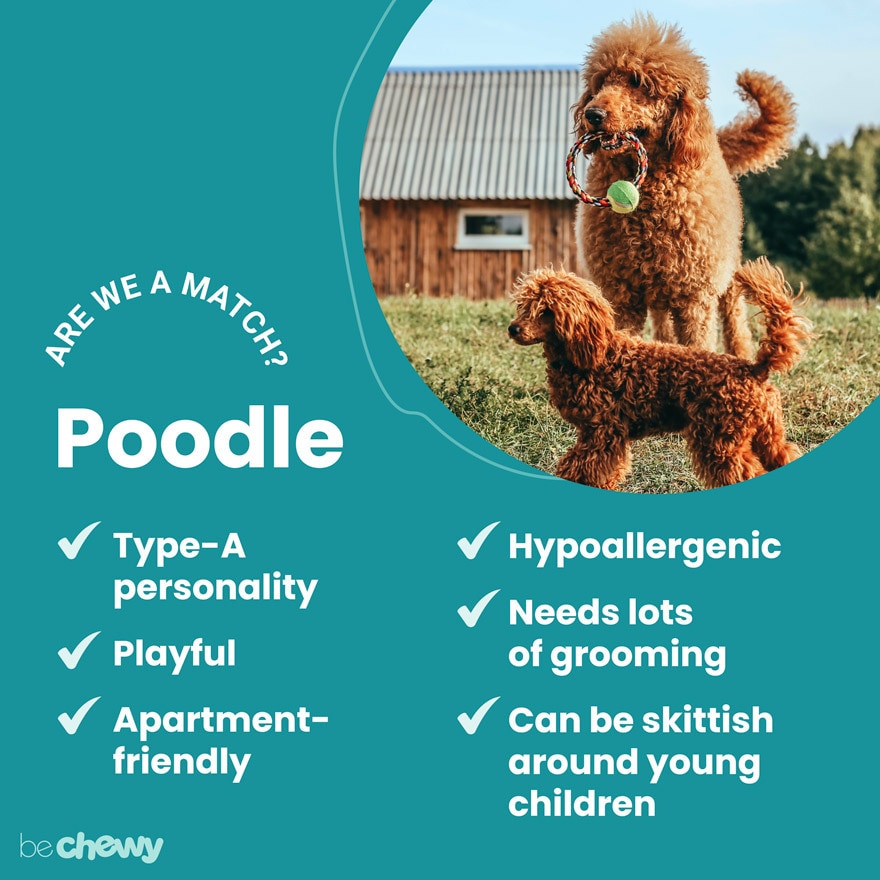
Top Takeaways
Smart, agile and up for anything, Poodles are great pets for new and experienced pet owners. They need lots of attention, but you’ll be rewarded for your time with plenty of love and laughs, and hopefully many, many birthday parties.
Expert input provided by Kate Knutson, DVM, of Pet Crossing Animal Hospital & Dental Clinic in Bloomington, Minn.; Michelle Alexandre, CPDT, of Patience Inspired Dog Training in Burlington, Vt.; and Mary Olund, Poodle Club of America board member and 40-year veteran Poodle breeder.
Breed characteristic ratings provided by veterinarian Dr. Sarah J. Wooten, DVM, CVJ, a veterinarian at Sheep Draw Veterinary Hospital in Greeley, Colorado; dog trainer and behavior consultant Irith Bloom, CPDT-KSA, CBCC-KA, CDBC, owner of The Sophisticated Dog, LLC, in Los Angeles; and certified animal behavior consultant Amy Shojai, CABC, in Sherman, Texas.
The health content was medically reviewed by Chewy vets.

Search for Adoptable Poodles Near You
Female Names
- Luna
- Bella
- Lucy
- Rosie
- Coco
- Ruby
- Piper
- Lola
- Stella
- Daisy
Male Names
- Teddy
- Charlie
- Cooper
- Milo
- Max
- Oliver
- Leo
- Winston
- Louie
- Ollie
Share:
